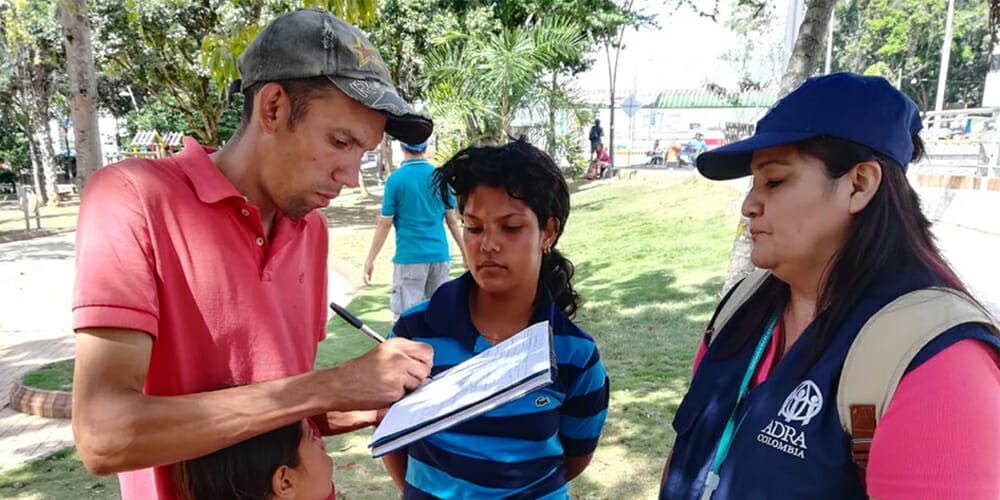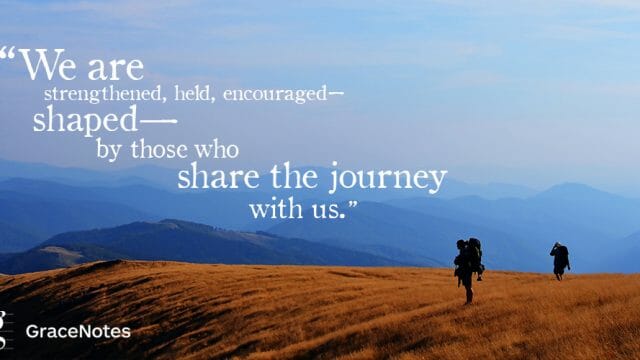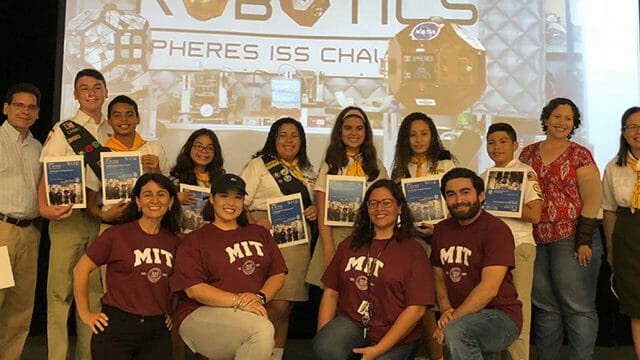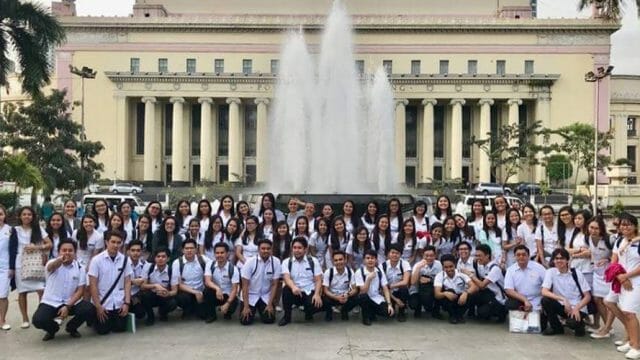More than 1.1 million have crossed into the country in recent weeks.

Since September 2018, the Adventist Development and Relief Agency (ADRA) in Colombia has been assisting thousands of Venezuelans who have crossed into eastern Colombia to escape the economic and political instability in their homeland. The effort represents assistance worth more than US$2.5 million, the largest project the Adventist agency has managed in the country, ADRA Colombia officials said.
According to recent government statistics, more than 1.1 million Venezuelans have migrated into Colombia recently, making up 30 percent of the population in the regions bordering Venezuela. Some 23 percent of those migrants have settled in the capital city of Bogota, and 41 percent are living in irregular or unstable conditions, explained Gabriel Villarreal, ADRA Colombia director.
“We noticed the influx of people and noticed that many who came into the country without their proper documentation were not able to have medical access in Colombia for a designated period, so we came up with a project to offer free health assistance to thousands of Venezuelans,” Villarreal said.
So far, ADRA Colombia staff and volunteers have provided medical consultations to thousands of people in migrant communities settled in the city of Bucaramanga, which is about 125 miles (200 kilometers) from the main Venezuela border crossing at Cucuta, Colombia. These consultations include free medical checkups, lab tests if necessary, and medications for thousands of families across Bucaramanga and Medellin — the second-largest city in Colombia, some 240 miles (390 kilometers) west of Bucaramanga.
The medical screenings are led by staff from two Adventist medical centers in each city, where they have cared for an estimated total of 10,200 individuals — 5,000 consultations in Medellin and 5,200 in Bucaramanga.
Each medical team in Bucaramanga and Medellin sees approximately 500 to 600 individuals per month, thanks to organizing by ADRA staff. They are working in coordination with local government officials to seek out Venezuelan migrants in need of the medical services, Villarreal explained.
“Many Venezuelans come to Adventist churches seeking assistance, and they are led to the registration process in community centers and Adventist churches near them to receive free medical checkups,” Villarreal said.
In addition, ADRA Colombia, through a large donor, is providing basic hygiene kits and cooking and housing kits, he said. “When we were studying to come up with this project we noticed that Venezuela migrants in Bucaramanga were in desperate need of basic hygiene kits, and they were sleeping in parks and on the streets. So we knew we had to extend the assistance.”
ADRA has already distributed 2,500 basic hygiene kits, 2,500 cooking kits — which include pots, plates, and utensils — and 2,500 housing kits, which include mattresses and sheet sets. Assistance is released on an average of 500 to 600 kits per month, Villarreal said. In addition, recipients are taught, and receive a flyer on, how to wash their hands regularly, how to practice safe family planning, and more.
“Parts of the border with Venezuela have recently been closed, and some of the influx has decreased,” Villareal said. “Many are still walking for miles through the cold for days to cross over into Colombia, so we know there is much need for this project intervention.”
Villarreal said that ADRA is planning to appeal for another phase of the assistance project beyond the twelve months that end in August. “We want to expand and help more Venezuelans as they transition from their country into Colombia,” Villarreal said.
ADRA Colombia has also been supporting other projects to assist Venezuelans migrating into Colombia through ADRA fundraising campaigns throughout the country.
The original version of this story was posted on the Inter-American Division news site.








